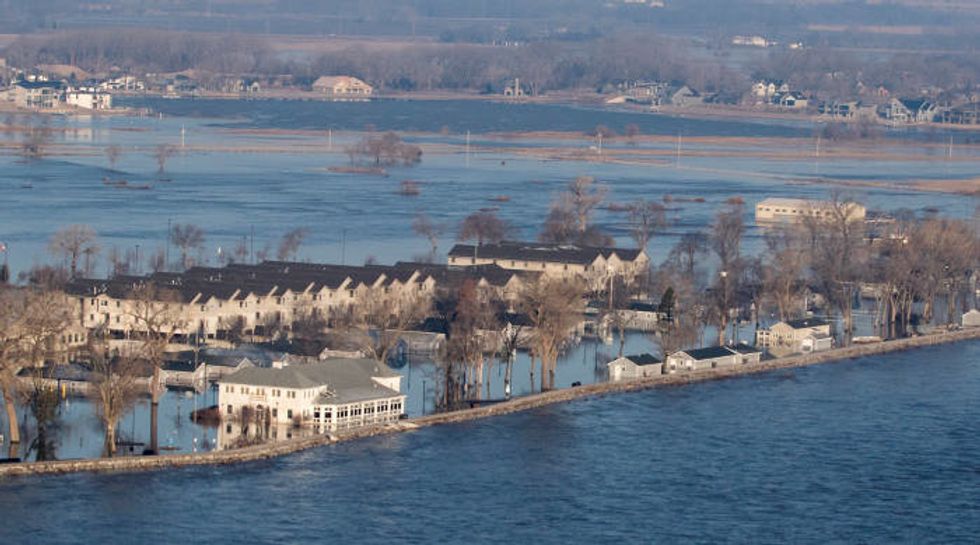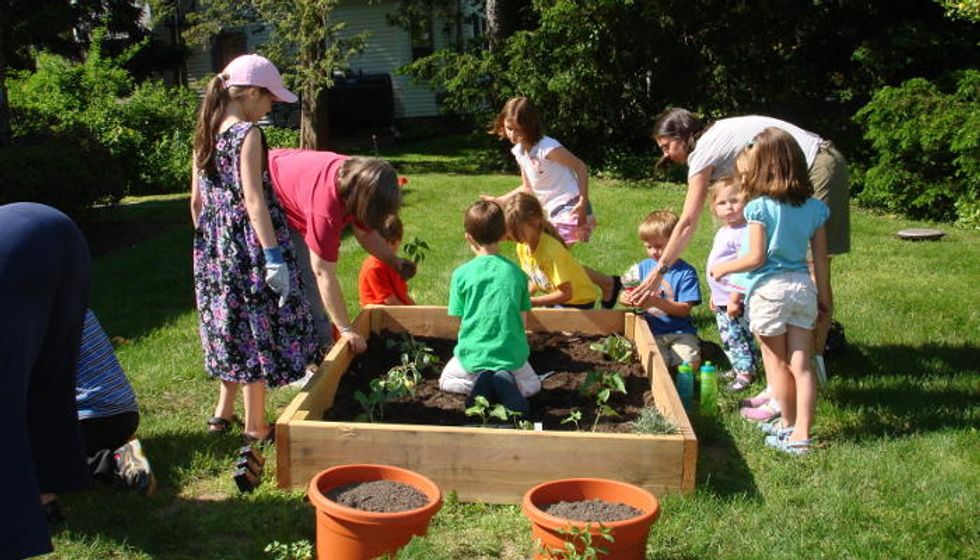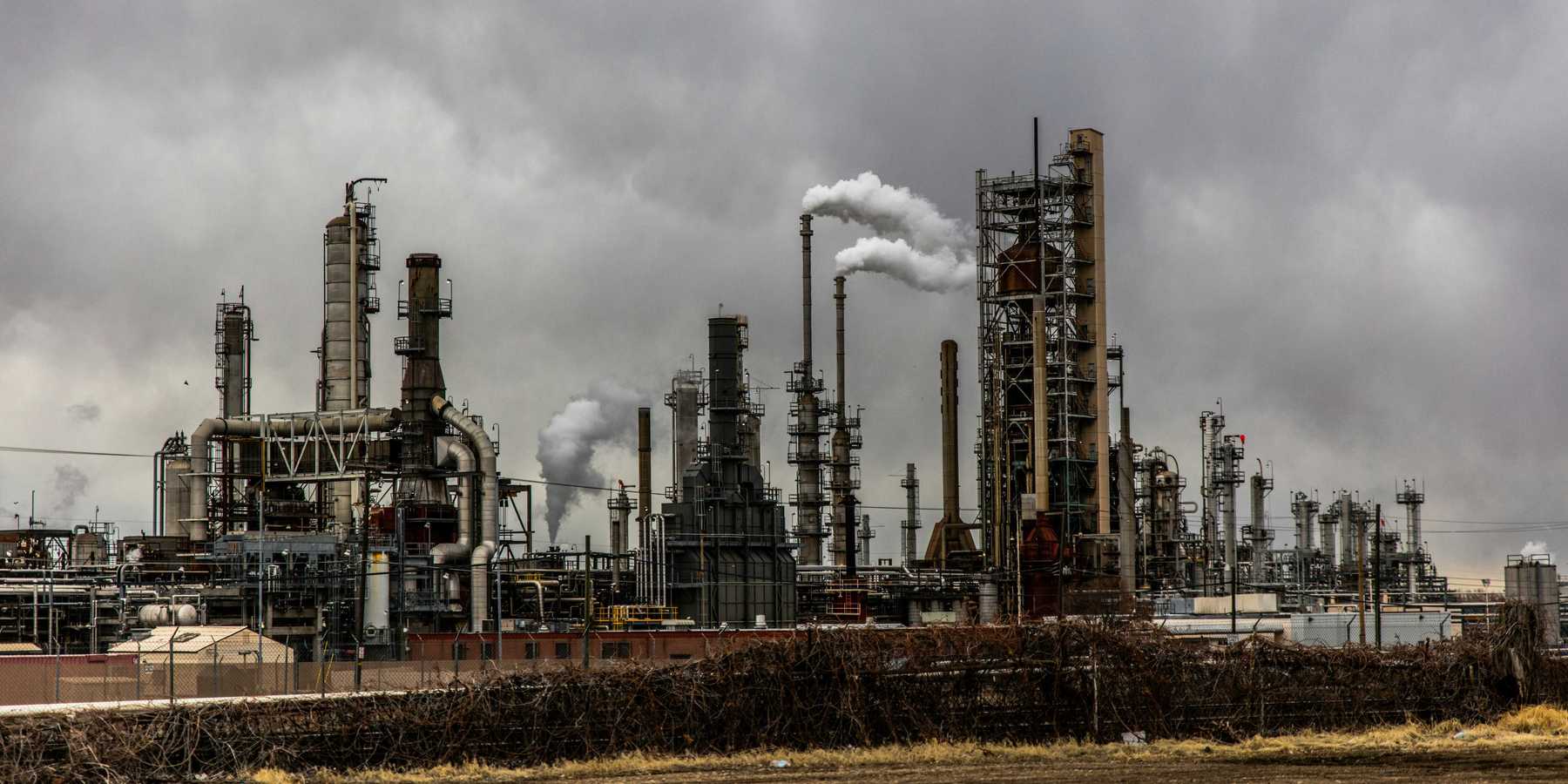Our food system’s reckoning with nature is coming
Agriculture expert explores how today's relationship to food banishes nature and the environment to the periphery of how we live, instead of at the center.
On a pleasant spring afternoon nearly five decades ago, I accompanied my father as he walked through our peach and cherry orchards near the Wasatch mountains of Utah.
The bright colors of pastel blossoms in full display did little to ease the anxiety in his face. The cold and snow of winter had given way to warming temperatures announcing an early spring. As swelling tree buds transformed into blossoms, they became vulnerable to freezing temperatures when colder weather returned.
The recent hard spring frost worried him. The reckoning about to happen was unavoidable.
As we walked between rows of trees, he plucked random blossoms for further inspection. Peeling back the petals he looked for the tiny ovary nestled at the flower's base. A still green color brought a sigh of relief. A brown or black color foretold the loss of fruit.
Experiences like these taught me no matter how hard we worked as farmers, food availability always comes down to nature and the environment.
Reckoning with warming
Such memories are never far from the surface when I see images of farmland and farm equipment submerged under water, stranded cattle with no place to go and nothing to eat, or fires raining destruction across vast landscapes.
Farmers today are having to reckon with the unwanted consequences of a warming planet.
From global records first kept in 1850, 17 of the 18 hottest years happened after 2000. In the U.S. alone, since 1980, there have been 241 extreme climatic events, each exceeding $1 billion in losses. In the past three years, the average number of billion-dollar losses has more than doubled the long-term trend.
Severe flooding in the Midwest, where much of the nation's grains and meat animals are raised; intense drought followed by fires then torrential rains in California, the country's number one agricultural state; a record-challenging tornado season — all serve notice that the new normal is anything but normal.
After each event, the reckoning always follows.
Lost connections

Having to reconcile availability of food with nature and the environment is as old as farming itself. No longer content to roam and live from what they could hunt and gather, our ancestors devised ways to stay in one place, alter their surroundings, and boost the supply of food.
By 1804, more than two million years since humans first arrived on the scene, the one billion population threshold was crossed. A mere 123 years later, the population doubled, then doubled again within half a century. Adding the latest one billion people took less than 13 years.
Behind the meteoric rise in population growth and prosperity was human ingenuity that ratcheted up levels of food. Yet the unprecedented abundance of food—which Americans now take for granted—never came with guarantees as to how long it would continue.
In a presentation to health promoters and nutritionists last month, I asked: "Where does food really come from?"
Their choices were: (a) supermarkets and restaurants; (b) 'free' markets; (c) farmers; (d) all of the above; or (e) none of the above. More than eight in 10 selected an answer between options (a) through (d).
Their answers, which reflect the domination of the modern food system in the way we live and relate to food, were not unexpected. America's latest connection to food had taken hold in less than two full-lifetimes.
Today, all we need to know about food is the location of the nearest supermarket or restaurant. All we need to do is bring money.
Want more food? Bring more money.
Societal confidence in our ability to pump out food nonstop has made it easy to avoid reconciling our self-made food system with nature and the environment.
Patenting processes of nature, limiting the diversity of other species, or saturating the environment with chemicals and concentrated animal waste are examples of outcomes we haven't accounted for.
Why?
From increasing food to controlling it
In a matter of decades, innovation from science driving the latest technologies promised to solve any unforeseen consequences. Our ability to increase the supply of food had morphed into presumed control over the availability of food.
And the need to consider that somehow our actions and mindsets might one day lessen food availability was easily ignored.
From ancestors whose lives were subservient to food, food had become subservient to us. An understanding of where food comes from had faded fast.
Back on the farm, peeling back a blossom to reveal a darkened ovary meant one thing—the absence of life that a day earlier was alive and doing well. We could buy more tree seedlings, prepare more soil, plant more trees, and prune more branches. We could inject more energy and effort through machinery, petroleum, and labor.
But what we couldn't replace was nature and the environment.
Each tiny ovary was proof that food comes from life. Such life is only possible when the diversity of nature, with its estimated 8.7 million species, combines with an environment attuned to sustain life, while drawing from the finite resources of our planet.
Growing up, I watched as nature and the environment bestowed life and took life away. Some years our orchards were barren, notwithstanding our best efforts. Other years, young peaches came in so thick they had to be thinned to keep tree branches from breaking and provide room for remaining fruit to mature.
Our food does not come from supermarkets and restaurants, 'free' markets, farmers, or the food system. The magic behind food, in all its wondrous forms, is nature and the environment. With good reason, there are no monoculture fields of corn in Death Valley, or banana plantations in Alaska.
The answer to the question I posed was (e), none of the above.
Our biggest threat? Indifference

We have it backwards when we build and never question a food system that puts ourselves at the center. Believing that food is beholden to us and under our control is reminiscent of medieval times when popular beliefs had the Sun revolving around the Earth.
More recently, farmers blamed the Dust Bowl of the 1930s on drought and wind, when farming practices and market incentives were the real forces. In the end, they were paid to change the way they farmed without having to change the way they thought.
Today's relationship to food banishes nature and the environment to the periphery of how we live, instead of at the center. The biggest threat we face is not external but comes from within—it's apathy.
Evidence of widespread indifference is on display when we do not question our approach to food despite rising temperatures, extreme flooding, extended fire seasons, or prolonged droughts—all manifestations of a warming planet.
Carbon dioxide's capacity to retain heat in the atmosphere was known 150 years ago. And we have long known that humans are driving countless species to extinction: a recent United Nations report, years in the making by more than 300 authors in 50 countries, warns that one million species are now in danger of vanishing.
What is happening around us encompasses more than food; yet it's worth asking ourselves: if food was scarce, would we have more respect for the laws of nature and realities of a finite planet?
Our dependence on the wellbeing of other species is absolute. The laws of nature apply universally. The realities of a finite planet never change.
It's worth reflecting on what we forfeit when we minimize our relationship with nature and the environment. We lose an appreciation for how millions of living species grant us life; admiration for the only planet known to support life in a galaxy of lifeless planets; gratitude to be alive at a time when we are not bound by what was once an everyday struggle to overcome food scarcity; and availability of more than 300,000 edible plants, even though our food system diet relies on just a handful.
We also lose the acknowledgment of what food brings to our lives beyond nourishment: cooperation, communities guided by shared norms, pursuing common interests, powers of observation that led to science, grounding our mindsets in reality.
The challenge ahead is to value food enough to know that a reckoning is long overdue. Reconciling our mindset and actions with nature and the environment will always be essential for our survival.
Kevin D. Walker grew up farming and has seen almost every facet of agriculture firsthand, working in agribusiness, at the US Department of Agriculture, overseas with international nonprofits, and as a professor at Michigan State University. He is the author, most recently, of The Grand Food Bargain and the Mindless Drive for More (Island Press, 2019).












